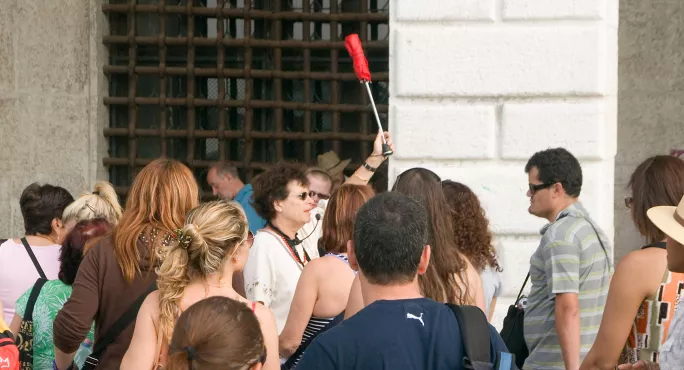Visiting prospective schools is an important process for parents and carers, but it can be an overwhelming one.
How can you see through the spin, and read between the lines? What are the red flags to watch out for?
Here’s an insider’s guide on getting the most from them.
Do your research
School websites are the best place to start when you’re thinking about future visits and open days. You’ll be able to access plenty of information about key members of staff and the subjects taught, as well as policy and governance details.
Look closely for guidance on how a typical day is structured and also for the different types of pastoral support available.
Most websites will display an introductory message from the headteacher, or even a blog. Take a close look at this; you can often gain real insights into the aspirations and culture of the school from what is said (and not said).
Read Ofsted reports, but remember that although they can also be useful sources of information, they only provide a snapshot.
Take time to form impressions
A lot schools plaster information about their core principles and noteworthy achievements on the outside of their buildings. It’s not uncommon, for example, to see headlines from a recent Ofsted report promoted on large banners.
This may be reassuring, but don’t let it cloud your judgement - take the time to look around and form your own impressions so you can judge for yourself if those values are authentically enacted.
Likewise, don’t be too swayed by the architecture of a school. They come in many shapes and sizes. Beware of the halo effect: an impressive facade is not necessarily a reliable proxy for the quality of educational provision.
Make notes during the speeches
School visits and open days typically begin with a series of speeches from members of the leadership team. You’ll hear about recent GCSE and A-level results, and will no doubt be told about the performance of a number of exceptional students.
There’s also likely to be a focus on the opportunities available to students beyond the classroom: clubs, trips, visits and so on.
But it’s inevitable that some of the finer details will be left out. Make a list of key points from the speeches that you want to find out more about and use them as the basis for deeper conversations later on. You can follow up on these areas as your visit progresses.
Talk to your tour guide
Tours are typically conducted by students from the upper years or sixth form. You’ll probably be taken on a pre-planned route, but there’s flexibility to deviate and visit other areas of the school, so let the guide know if you’d like to take a look at a specific department or facility.
Tours are a really good opportunity to speak to students about their perspectives on day-to-day life there. Ask your guides about their experiences of settling in to the school when they first joined.
You’ll usually find that they speak with a disarming honesty about what they did and how they felt.
Alarm bells should ring if the anecdotes you hear hint at a lack of care, interest and follow-up from teaching and support staff.
Speak to staff
There should be some time available at the end of a typical tour for a question and answer session with a selection of staff. Don’t be afraid to ask questions and challenge answers that you feel are vague or unsatisfactory.
Make an effort to speak to a range of staff at all levels, including support staff, to gain different perspectives.
Take your time before arriving at any firm conclusions and making a final decision. Speak to people who know about the schools you are interested in and take their views on board along with all of the other knowledge you have gained.
If you want to know more about a particular school, arrange to visit again; it’s not uncommon to do so.
Douglas Wise is an assistant principal at an all-through academy in Northampton. He tweets @DoWise
